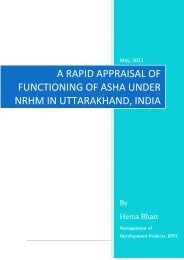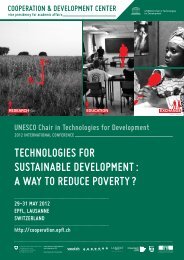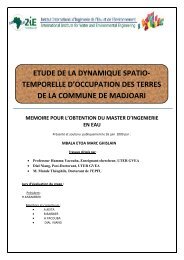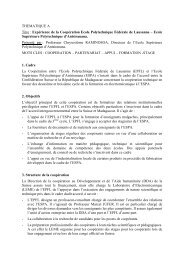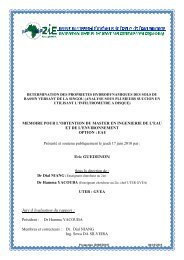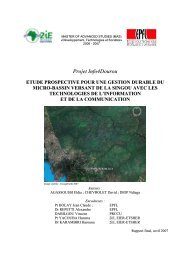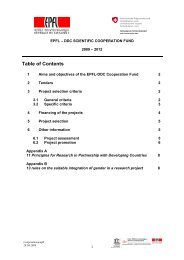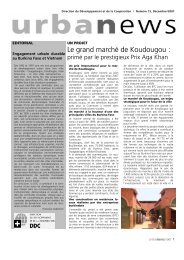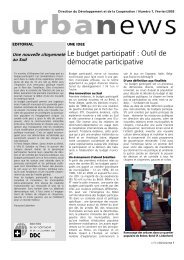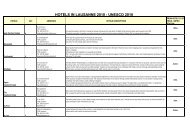Beekeeping for Poverty Alleviation and Sustainable Rural Livelihood
Beekeeping for Poverty Alleviation and Sustainable Rural Livelihood
Beekeeping for Poverty Alleviation and Sustainable Rural Livelihood
Create successful ePaper yourself
Turn your PDF publications into a flip-book with our unique Google optimized e-Paper software.
PROJECT PLANNING<br />
The project cycle includes two major phases starting with the design phase that involves<br />
baseline analysis, needs assessment, <strong>and</strong> project design, <strong>and</strong> then the implementation phase<br />
including planning, implementation, <strong>and</strong> followed by a monitoring <strong>and</strong> evaluation system.<br />
BASELINE ANALYSIS AND NEEDS ASSESSMENT<br />
In order to learn about the current situation <strong>and</strong> the problems facing the target group, a<br />
participatory approach baseline analysis is per<strong>for</strong>med to better underst<strong>and</strong> the reality of the<br />
issues, how they interrelate, how they evolved, <strong>and</strong> how urgent they rank. Needs<br />
assessment is also per<strong>for</strong>med to identify, prioritize, <strong>and</strong> level the needs.<br />
The target group in this case is the local community, which makes it most appropriate to<br />
start the situation analysis there <strong>and</strong> then extend the perspective gradually. So the ripple<br />
starts with the inhabitants of rural areas who live in poor conditions, <strong>and</strong> then moves out to<br />
the farmers <strong>and</strong> families conducting agricultural activities. These groups are met r<strong>and</strong>omly in<br />
poor regions of the country <strong>and</strong> interviewed to underst<strong>and</strong> their needs <strong>and</strong> problems.<br />
The third level includes meetings with beekeepers <strong>and</strong> those who used to be in business but<br />
stopped <strong>for</strong> any reason, to conclude with a fourth level that included beekeeping experts<br />
<strong>and</strong> suppliers who have good experience about the situation in rural areas <strong>and</strong> the problems<br />
facing small scale beekeepers.<br />
The research per<strong>for</strong>med has identified a root cause of poverty in the rural regions of the<br />
country, which turned out to be the lack of diversified sources of income <strong>and</strong> the restriction<br />
to certain agricultural activities.<br />
It also reached basic conclusions regarding the decrease in beekeeping activities <strong>and</strong> giving<br />
away this additional source of income. It was clear that the low technical skills <strong>and</strong> the lack<br />
of financial support have been playing a major role in reducing the interest of local farmers<br />
<strong>and</strong> agricultural workers in beekeeping <strong>and</strong> honey production.<br />
The survey questionnaire is originally per<strong>for</strong>med in Arabic. A translated version with the<br />
results of the survey is presented in appendices A <strong>and</strong> B.<br />
3




